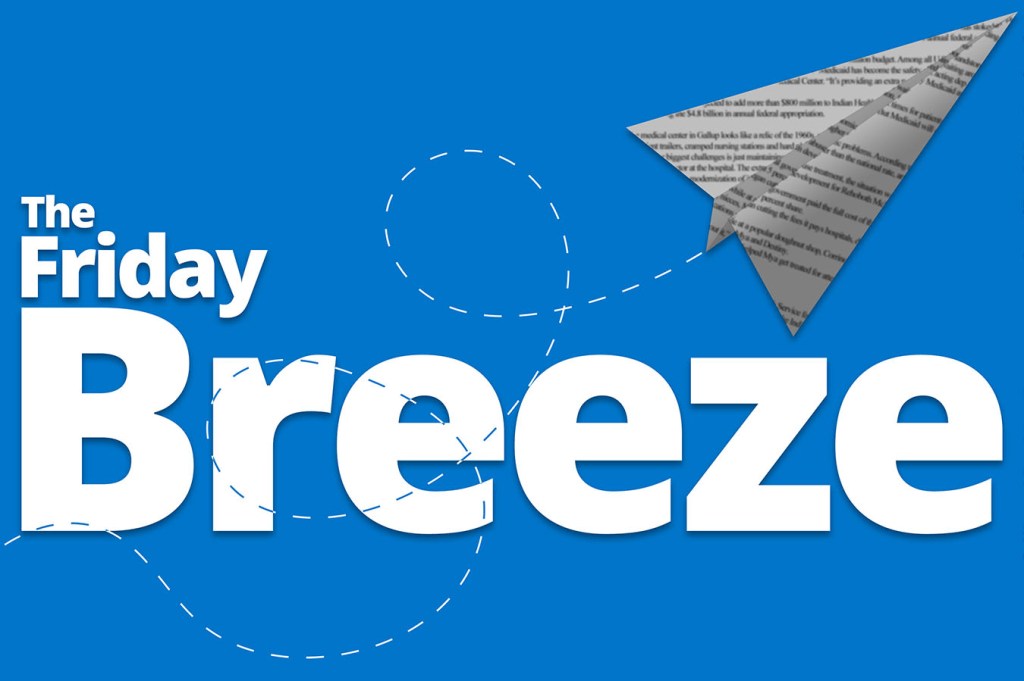Welcome back to the Friday Breeze! In stories that make you go “Huh, that is true”: Here’s a look at how advances in modern medicine have actually shaped the Supreme Court (mostly by letting justices live way longer than they did in the time of the Founding Fathers). While we’re at it, get ready for nominee Brett Kavanaugh’s hearings that are slated to start Tuesday.
Now here’s what you may have missed:
It’s that special time of year (ahem, election season) when bills become more about winning talking points than something that can be realistically passed (or more so than usual, that is). Case in point, Senate Democrats just introduced a bill to roll back the administration’s rule on expanding short-term plans. It’s unlikely to go anywhere, but it would force Republicans to vote on health care (which Dems see as a winning issue on the trail) close to midterms.
The Hill: Dem Introduces Measure to Overturn Trump Expansion of Non-ObamaCare Plans
Oops? A group of Republicans introduced a bill last week to tuck protections for preexisting conditions into the Health Insurance Portability and Accountability Act — but it may backfire for some GOP candidates. At least Sen. Joe Manchin (D-W.Va.) is using it to point to the fact even Republicans know they’re putting the popular provision at risk.
The Hill: Manchin Uses New GOP ObamaCare Bill to Hit Opponent on Pre-Existing Conditions
So, how’s the law actually faring? Uninsured numbers remained pretty steady, though deep geographical disparities remain.
Bloomberg: Fewer Americans Without Health Insurance Since Obamacare Debut
—
A Texas teacher’s $109,000 surprise medical bill for his heart attack sparked enough outrage this week that the hospital knocked the price he had to pay down to $332. But the reduced bill came only after the teacher was featured as part of KHN and NPR’s “Bill of the Month” series, which was then widely picked up by social media and other news sites. So what does that mean for people who don’t have an investigative journalist to shine a light on the problem? (If that’s you, please send us your bill! It’s an ongoing series.)
A Jolt To The Jugular! You’re Insured But Still Owe $109K For Your Heart Attack
And see KHN’s editor-in-chief Elisabeth Rosenthal talk about it on CBS here.
But those sky-high surprise bills aren’t the only ones that have collectors knocking. Many bills are modest — $600 or less — and can still ding a patient’s credit.
The Associated Press: Even a Small Amount of Medical Debt Can Trigger Headaches
Modern Healthcare: More Than Half of Americans Have Receive a Surprise Medical Bill
—
After months of feet dragging, we have a new Puerto Rico death toll from Hurricane Maria: 2,975. (For reference, the original official one? 64.) That places it among one of the worst natural disasters in U.S. history. A day after the number was changed, President Donald Trump defended his administration’s response: “I think we did a fantastic job.”
—
There’s a showdown brewing on the horizon between the Trump administration and the city of San Francisco, and it has to do with safe-injection sites. They’re popular with advocates (and the science is there to back them up), but also tend to provoke strong reactions from people who see them as promoting drug use. It may come to a head soon, because just as Justice officials vowed “swift and aggressive” action against any attempts to set them up, California lawmakers approved a pilot program for San Francisco.
Politico: Trump Administration Warns California Against ‘Safe’ Opioid Injection Sites
—
Public health had a rough week: U.S. joined Brazil, Colombia, Guatemala, Mexico and Venezuela to make up half of the annual worldwide 251,269 gun deaths. In other countries, the chance of getting shot was 1 in 1 million. In the U.S, the odds are 100 times higher.
The Associated Press: Worldwide Gun Deaths Reach 250,000 Yearly; US Ranks High
More bad news piled on: The country’s STD rate has hit a record high. The most worrying part? We’re swiftly entering an era where the diseases are becoming resistant to treatments, and drug companies lack almost any incentive to develop new antibiotics.
The New York Times: S.T.D. Diagnoses Reach Record 2.3 Million New Cases in U.S.
—
A gut-wrenching and visually captivating (must-read) story on mentally ill inmates and their deaths is kicking off my miscellaneous file this week, along with a tragic play-by-play of a medical emergency that fell through the cracks during Hurricane Harvey.
The Virginian-Pilot: Horrific Deaths, Brutal Treatment: Mental Illness in America’s Jails
The New York Times: Lost in the Storm
Also: A wave of lawsuits makes it seem as if universities are fumbling when it comes to suicidal students, but what should they be doing?
The New York Times: Feeling Suicidal, Students Turned to Their College. They Were Told to Go Home.
And, a year ago, billionaire Patrick Soon-Shiong seemed like the savior of a deeply indebted California hospital system. Today, it’s on the brink of bankruptcy. What happened?
Politico: Did Patrick Soon-Shiong’s High-Tech Gamble Help Bring 6 Hospitals To The Brink?
—
Sen. John McCain is being laid to rest this week after a battle with an aggressive, complex form of brain cancer. Out of the two dozen experimental drugs tested in the past decade, zero improved survival for those newly diagnosed. More research, experts say, is the only hope.
Have a lovely holiday weekend!
This story was produced by Kaiser Health News, an editorially independent program of the Kaiser Family Foundation.


